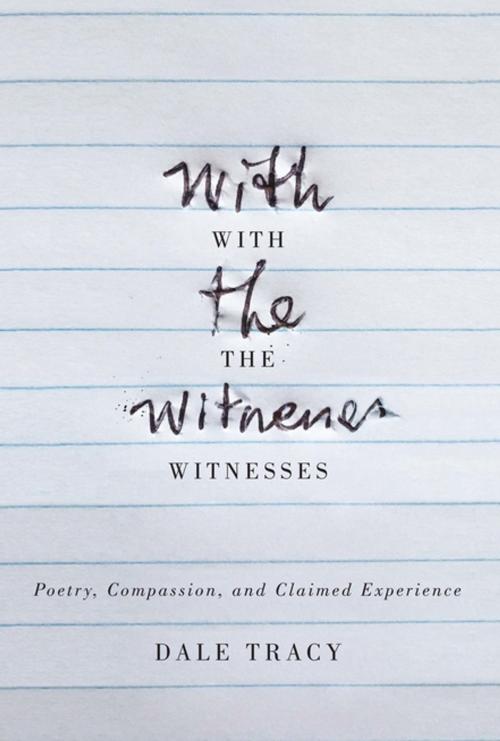With the Witnesses
Poetry, Compassion, and Claimed Experience
Fiction & Literature, Literary Theory & Criticism, Theory| Author: | Dale Tracy | ISBN: | 9780773550308 |
| Publisher: | MQUP | Publication: | June 9, 2017 |
| Imprint: | MQUP | Language: | English |
| Author: | Dale Tracy |
| ISBN: | 9780773550308 |
| Publisher: | MQUP |
| Publication: | June 9, 2017 |
| Imprint: | MQUP |
| Language: | English |
While trauma theory has been adopted by contemporary literary and cultural studies as an ethical way to study depictions of suffering, there is a risk that its present use could cause more harm than good. By emphasizing inaccessible histories, unspeakable suffering, and unconscious witnessing, trauma theory may lead readers to claim others’ suffering through empathic identification. In With the Witnesses, Dale Tracy argues that poetry offers an alternative approach to engage with not only suffering in art but suffering in general. Examining the strategies of witness poetry, Tracy interrogates and reformulates the dominant models of trauma studies in which readers take over the witnessing position by identifying with the speaker as a witness. If the purpose of reading such poetry is to contribute to a chain of witnesses, what is the distinct role of a reader, and how does it differ from the role of the poem’s speaker? Tracy proposes that metonymy – a logic of nearness rather than likeness – is compassion’s formal manifestation. Analyzing poetry that emphasizes the contiguity of metonymy over the substitution of metaphor, she attends to the positions into which witnessing speakers invite readers. Poems that respond to diverse national and transnational contexts of atrocity, conflict, and marginalization guide With the Witnesses toward a compassionate response to suffering that involves feeling with – not as – another. Following each poem as a unique theory of compassion, With the Witnesses demonstrates that poems hold suffering signed as art, not claimable traces of suffering.
While trauma theory has been adopted by contemporary literary and cultural studies as an ethical way to study depictions of suffering, there is a risk that its present use could cause more harm than good. By emphasizing inaccessible histories, unspeakable suffering, and unconscious witnessing, trauma theory may lead readers to claim others’ suffering through empathic identification. In With the Witnesses, Dale Tracy argues that poetry offers an alternative approach to engage with not only suffering in art but suffering in general. Examining the strategies of witness poetry, Tracy interrogates and reformulates the dominant models of trauma studies in which readers take over the witnessing position by identifying with the speaker as a witness. If the purpose of reading such poetry is to contribute to a chain of witnesses, what is the distinct role of a reader, and how does it differ from the role of the poem’s speaker? Tracy proposes that metonymy – a logic of nearness rather than likeness – is compassion’s formal manifestation. Analyzing poetry that emphasizes the contiguity of metonymy over the substitution of metaphor, she attends to the positions into which witnessing speakers invite readers. Poems that respond to diverse national and transnational contexts of atrocity, conflict, and marginalization guide With the Witnesses toward a compassionate response to suffering that involves feeling with – not as – another. Following each poem as a unique theory of compassion, With the Witnesses demonstrates that poems hold suffering signed as art, not claimable traces of suffering.















